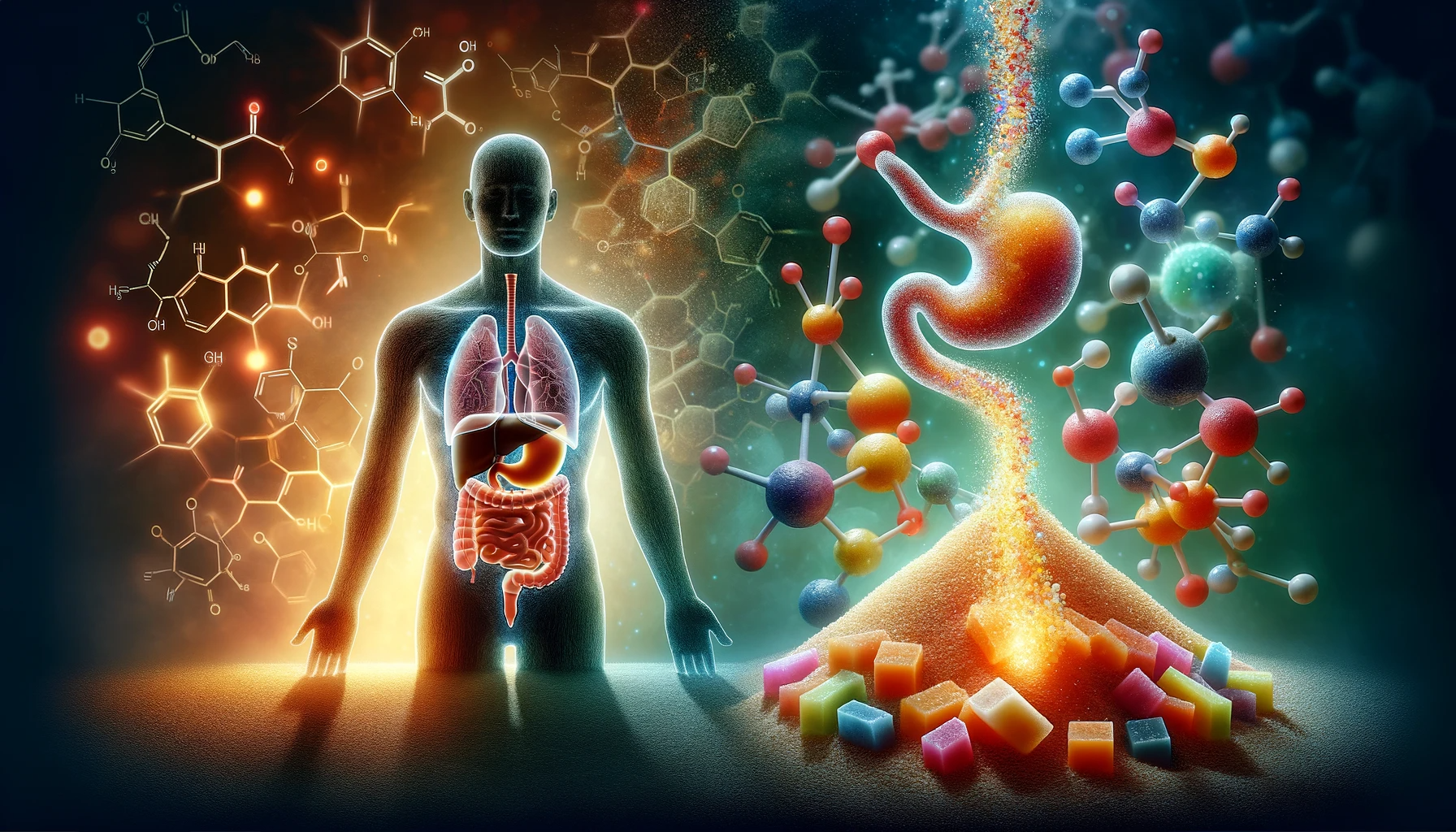Higher rates of obesity, metabolic syndrome, type 2 diabetes, and cardiovascular diseases have become a significant public health concern. Increased sugar intake has been identified as the cause of these disorders, leading to the introduction of non-nutritive sweeteners (NNSs). Alternative sweeteners contain no or few calories, and their use has substantially increased over time. It has been reported that 40% of adults in the United States (US) consumed alternative sweeteners between 2009 and 2012, 54% higher than the estimates from 1999 and 2000.

Study: Effect of low-and non-calorie sweeteners on the gut microbiota: A review of clinical trials and cross-sectional studies
Whether sweeteners lack any harmful effects is still debated. Some studies report links between the intake of alternative sweeteners and shifts in physiological parameters, such as insulin resistance (IR) and glucose tolerance, with the gut microbiota implicated in mediating these effects. Further, studies have demonstrated associations between low gut microbial richness and increases in IR, dyslipidemia, adiposity, and inflammation. Dietary patterns can modulate the gut microbiota, thus influencing the physiological factors linked to metabolic diseases.
The study and findings
In the present study, researchers analyzed the current evidence on the effects of LNCSs on the gut microbiota. PubMed and Ovid databases were searched for cross-sectional studies and clinical trials. Only studies including healthy populations were selected. Studies that evaluated the oral microbiota were excluded. The preliminary search yielded 465 records; after duplicate screening and exclusions, full texts of 14 articles were reviewed. Overall, 11 studies – four cross-sectional studies and eight clinical trials – were included for analysis.
One study comprised both cross-sectional and clinical trial protocols. Six trials were randomized controlled trials; one was a non-randomized uncontrolled trial, and one was a randomized uncontrolled trial. The studies were conducted between 2006 and 2022 in the US, the United Kingdom (UK), Europe, Israel, Canada, and Chile. Two trials assessed the effects of saccharin on the gut microbiota; one investigated sucralose, three examined polyols, and two studied multiple NNSs.
Two cross-sectional studies evaluated the associations between the consumption of artificially sweetened beverages (ASB) and the microbiota composition; one study focused on the consumption of aspartame and acesulfame-K, while the other evaluated global artificial sweetener consumption. One trial found no effect of supplementing 800 mg of saccharin to 46 individuals for two weeks. In contrast, the other trial noted that the microbiota clustered differently in individuals with poorer glycemic response than those with normal glycemic response.
Another trial found no changes in the gut microbiota after sucralose supplementation. Meanwhile, a two-week sucralose supplementation altered the gut microbiota in a different study, increasing Dorea longicatena and Eubacterium. Likewise, the aspartame trial observed no gut microbiota alterations after a two-week intervention. Studies investigating polyols (isomalt, lactitol, and maltitol) revealed their beneficial impact on the gut microbiota.
Specifically, the consumption of these polyols significantly increased the bifidobacterial population. One cross-sectional study identified a difference in microbial diversity between consumers of acesulfame-K or aspartame and non-consumers. Besides, a positive correlation was reported between artificial sweeteners and numerous taxonomic entities, such as Actinomycetota, Enterobacteriaceae, and Deltaproteobacteria.
A Swedish study examined the consumption of ASB or naturally sweetened beverages among 1,085 healthy adults and found no associations between ASB consumption and microbiota changes. Further, a Canadian study analyzing ASB consumption among infants and their mothers found that maternal ASB intake was associated with the depletion of Bacteroides spp in infants. In one study, sucralose and saccharin supplementation impaired participants’ glycemic response.
Germ-free mice receiving the microbiome from participants with impaired glucose tolerance (responders) developed an increased glycemic response than those receiving the microbiome from non-responders. A few trials suggested that the glycemic response to NNSs was partly driven by baseline interindividual differences in the gut microbiota. Specifically, individuals with higher post-intervention insulinemia had distinct baseline microbiota composition independent of placebo or sucralose consumption.
Conclusions
In summary, two clinical trials suggested that NNSs altered the gut microbiota and revealed a causal effect between sucralose or saccharin intake and impaired glucose tolerance in mice. Trials on polyols suggested the beneficial effects on the microbiota. A few cross-sectional studies noted associations between the consumption of alternative sweeteners and detrimental gut microbiota changes.
Moreover, the baseline microbiota composition could modulate glycemic and microbial response to LNCSs. The heterogeneity in findings across studies could be attributed to the small sample sizes, methodological differences, short/varying intervention periods, and individualized responses to LNCSs. Overall, studies in larger cohorts with more realistic sweetener doses and longer durations are required to corroborate these findings.